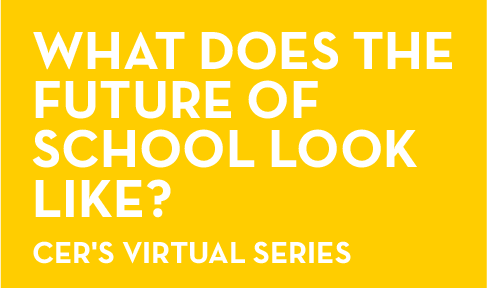Why the Federal Covid Funding Package Must Incorporate Religious Schools
Commentary by: Jeanne Allen, Founder and CEO of CER
Hundreds have written about and people from all religious backgrounds have celebrated and shared the data-based fact that Religious schools save lives.
Since Sociologist James Coleman and his colleagues first documented Catholic schools’ academic successes in 1982, as Education Next puts it succinctly, “A variety of studies… by scholars at the University of Chicago, Northwestern, the Brookings Institution, and Harvard, have all supported the conclusion that Catholic schools do a better job educating children, especially the poor and minorities, than public schools.”
No matter who they serve, students emerge not only successful but disciplined. Catholic schools have a 99% graduation rate, according to the National Catholic Education Association. Says Hudson Valley News, “Five of the current U.S. Supreme Court Justices went to Catholic schools, and one third of U.S. Senators and one quarter of those serving in the House of Representatives are Catholics.
‘Public service is at the heart of the Catholic ideology, and the combination of academic success and civic responsibility translates into students’ desire to serve their fellow men and women,’ says Catherine Merryman, principal at Our Lady of Lourdes High School in Poughkeepsie, NY. “Every one of our graduates earns a New York State Regents diploma, more than 70 percent of them earn an Advanced Regents’ diploma, and 99 percent of our students go on to college – and 86 percent of them are accepted by their first choice college. All students take college preparatory classes, and 98 percent of our students achieve success in a college level course. On average they graduate with 16 college credits. We set high standards across the board with a strenuous core curriculum and a shared assumption about what knowledge and skills our students need to acquire.’”
Jewish schools and Christian schools, while not as plentiful, are also chock full of data showing that, despite fewer resources than traditional schools, students graduate more often than not having achieved more academically and with more accolades than their peers in traditional schools.
So why, given the global pandemic happening now, am I bringing this up? The Senate last night passed a massive and necessary stimulus package to prop up ailing institutions, workers and small businesses. The House is slated to pass the final version tomorrow. Then the president will take to his daily briefing to talk about the benefits.
Education has a massive carve out to ensure funds flow to education needs not being covered in today’s unprecedented disaster. But the funds are for public institutions, public schools, and public libraries to deliver, and it’s not clear that our nation’s religious schools– about three-quarters of the 10% of all private schools, serving more than 6 million students annually, will be compensated.
But while public education has already received the lion’s share of its funding for the year to pay for its buildings, staff, educators and materials, private schools have payment plans they will now not be able to collect on, and will have to grapple with consumers who may or may not be able to pay again come year’s end for next year.
Earlier this year the U.S. Supreme Court heard oral arguments in a case about whether or not parents should direct the education of their children. Espinoza vs. Montana Department of Revenue was taken to the high court by a group of low-income parents who wanted to use a scholarship for their children to attend religious schools. 19th century policies on the books, called Blaine Amendments, were used to deny them this opportunity, as has been the case with other parents in 36 other states. (See CER’s work on the case here.)
Our brief is among dozens that request the court recognize the constitutional right of parents to control education for their kids. If there was any question that was the case, look at the millions of homes right now where parents are educating their kids. It’s not just because there’s a pandemic. It’s because parents are a child’s first teacher, their primary caregiver, and schools are and should only be the institutions that they designate to help them grow their birthright into productive citizens.
Citizens may prosper or form in all manner of educational setting. And today, the majority, due to compensatory education laws (all fine) and illegality of parental choice in most states (not fine) have one option: traditional public schools.
And while we await the court’s decision, and battle out the idea in state halls, the question for everyone should be: Why would Congress allocate funds to prop up one form of public education over another? Our nation’s governmental structures should not favor one religion over another, nor the lack of religion over its presence.
Education is happening now mostly in homes, owing to Covid-19. The target of federal funds should be whatever school a student last attended, not the system we can best and most easily inject money into. And institutions should in turn ensure that every parent is set up for success at home, with the support and active engagement of teachers via remote learning tech (as thousands have already seen is happening in many areas).
What I am suggesting here is already being applied by the new federal package to higher education, where funds are being allocated to forgive various obligations of students no matter what school they attend.
Never mind that religious schools do more with less, and that their results outshine those of public schools, particularly low income students. Education quality and access should be our focus, not any one kind of schooling. We must save our religious schools and support their educators, staff and obligations as much as we support those in public schools. It’s only fair.
















No comments at this time.